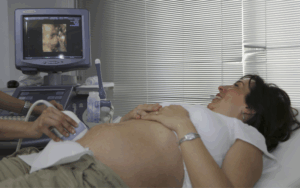
The noncoding regions of the genome are frequently associated with disease-associated mutations. Expression quantitative trait loci (eQTL) mapping can identify any changes in gene expression caused by these variants. Each human gene is currently known to have at least one eQTL, found in a wide variety of cell types and human tissues. Both bulk RNA sequencing of stimulated cell conditions and single-cell techniques have been applied in several research studies. After two intervals of stimulation, researchers identified eQTLs across 12 different cellular states, including macrophages differentiated from induced pluripotent stem cells (iPSCs) of 209 individuals.
The study demonstrated how condition-specific regulatory variation enhances our understanding of common disease risk and the spectrum of genetic impacts on gene expression. The NEBnext Ultra II Directional RNA Library kit and a modified Smart-seq2 methodology were used to process the libraries more quickly. The gencode v.27 transcript annotation and GRCh38 reference human genome were used to align the RNA-seq data. The 96-library pool was subjected to Principal Components Analysis (PCA) to identify sequencing artifacts.
Pairwise PCA comparisons between each condition and all others were used to identify and eliminate misclassified stimulated samples. In total, 23 iPSC lines were recognized as swaps, 63 additional samples were excluded, and 3 iPSC lines were discarded because of cross-contamination. Researchers used UMAP analysis to visualize the transcriptional variance across conditions in the gene expression data. The transcriptional differences between the various conditions were shown in low-dimensional space using the resultant UMAP graphic. This allowed researchers to track genes with time-dependent expression changes and distinct patterns of different regulation.
The R packages ClusterProfiler and ReactomePA were used to perform enrichment studies of Gene Ontology (GO) terms and Reactome pathways. A hypergeometric test identified biological pathways and processes represented by differentially expressed genes (DEGs). The beta distribution of each gene was estimated using QTL tools, and the null distribution of p-values was assessed. A reverse selection step following forward stepwise regression enabled the detection of multiple independent signals for a particular eGene.
Researchers employed a previously published protocol with slight modifications to differentiate 217 iPSC lines derived from unrelated healthy donors into macrophages. A total of 4,698 distinct RNA-seq libraries from 209 distinct iPSC lines were retained following quality assessment of the transcriptome profiles of 5,208 samples. The mean distances of the secondary and tertiary eSNPs from the transcription start sites (TSSs) were 206 and 233 kb, respectively.
Colocalization of response eQTLs (reQTLs) enabled the assignment of an additional 21.7% of disease effector genes at GWAS loci, complementing 38.6% not captured by the Genotype-Tissue Expression (GTEx) database. Most GTEx samples are derived from post-mortem tissues, and the genetic regulation of immune responses to a specific disease remains incompletely understood.
Future large-scale single-cell QTL and reQTL studies in primary tissues and suitable cellular models will further improve the ability to identify genetic influences. These investigations will provide critical insights into how genetic variation influences molecular features across different cell types, thereby advancing our understanding of the biology of human disease.
References: Panousis NI, El Garwany O, Knights A, et al. Gene expression QTL mapping in stimulated iPSC-derived macrophages provides insights into common complex diseases. Nat Commun. 2025;16:7204. doi:10.1038/s41467-025-61670-9












